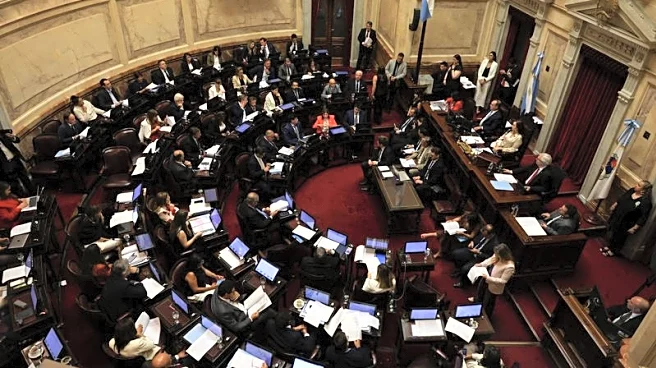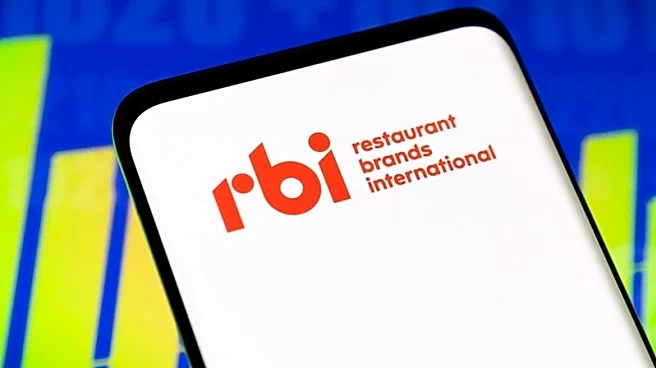What's Happening?
The Department of Homeland Security (DHS) recently released a video promoting Immigration and Customs Enforcement (ICE) raids, which featured elements from the Pokémon franchise, including its theme song,
slogan, and iconic font. The Pokémon Company International has publicly stated that it did not grant permission for the use of its intellectual property in this video. The video included cartoon footage of Ash Ketchum and was captioned 'Gotta Catch 'Em All,' a well-known slogan from the Pokémon series. The Pokémon Company expressed its disapproval through a statement to Entertainment Weekly, emphasizing that it was not involved in the creation or distribution of the content. Additionally, comedian Theo Von criticized the DHS for using his likeness in another video without consent.
Why It's Important?
The unauthorized use of intellectual property by a government agency raises significant concerns about the respect for copyright laws and the ethical use of media in public communications. This incident highlights the potential for misuse of popular cultural elements by official entities, which can lead to public relations issues and legal challenges. The Pokémon Company's response underscores the importance of protecting brand integrity and intellectual property rights. Furthermore, the criticism from Theo Von points to broader issues of consent and representation in government messaging, which can affect public perception and trust.
What's Next?
The DHS has removed the video featuring Theo Von following his public objection, but the Pokémon-themed video remains online. It is unclear whether the Pokémon Company will pursue legal action or further public statements regarding the incident. The situation may prompt discussions within government agencies about the protocols for using copyrighted material in official communications. Stakeholders, including media companies and legal experts, may advocate for clearer guidelines to prevent similar occurrences in the future.
Beyond the Headlines
This incident may lead to increased scrutiny of how government agencies utilize popular media in their communications strategies. It raises questions about the balance between engaging public interest and respecting intellectual property rights. The ethical implications of using cultural icons in government messaging could influence future policies and practices, potentially leading to more stringent oversight and accountability measures.










